As teachers, it is our job to facilitate learning in the classroom. Self-assessment for students is one of the most powerful tools we can use to engage students and encourage learning. Self-assessment for students gives them agency over their own learning and encourages deeper thinking and understanding. Studies have shown that self-assessment can be particularly beneficial for upper elementary teachers, who are helping students transition from primary to secondary school. Let’s dive into why self-assessment is important for student success.

Self-Assessment for Students Increases Ownership Over Learning
When students assess their own learning, they take ownership over that learning. Rather than relying on a teacher or parent to tell them what they know and don’t know, they are actively engaged in the evaluation process. This can lead to increased motivation, engagement, and confidence as students recognize their own progress which in turn leads to greater retention of material.

Self-Assessment for Students Fosters Critical Thinking Skills
Self-assessment also helps promote critical thinking skills. By evaluating themselves, students become more aware of how they learn best and what areas need more attention or improvement. This self-reflection allows them to develop an individualized plan for success that works best for their unique needs. With practice, this skill will become increasingly beneficial as they move on through school and eventually enter the workforce.
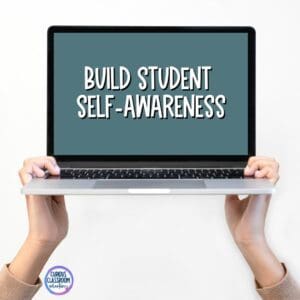
Self-Assessment for Students Builds Self-Awareness
Self-assessment also helps 3rd and 4th graders develop a stronger sense of self-awareness. By asking themselves questions like “What did I do well?” or “What could I have done better?” they learn to identify areas where they need improvement, which then leads them to set goals for themselves and strive towards them. This process builds confidence in the student, which is essential for success in the classroom setting.
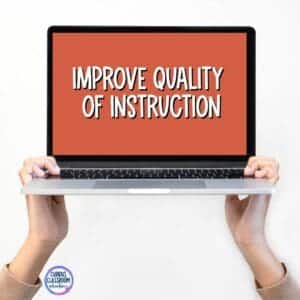
Improving Teacher Instruction
Lastly, self-assessment can be a great tool for teachers. By having students record and share their work during self-assessment, teachers can get a better sense of where gaps may exist between what was taught in class and what was understood by the class as a whole. Combined with teacher observations during a self-assessment class period, provides valuable feedback which can be used to improve instruction in future lessons so that all students are better able to understand the material being taught in class.
If you’re ready to give student self-assessment a try, math class is the perfect starting point. And I am excited to equip you with all the tools you need to implement self-assessment right away! Grab a whole year of free self-assessments for students today.
And, of course, having engaging and interactive lessons that build math understanding and skill prior to assessment is essential. Often that requires going beyond the textbook. This collection of math lessons is perfect for tapping into the creative and playful side of your students to keep them engaged in learning and practicing math concepts in 3rd and 4th grade.
Self-assessment is an invaluable tool for promoting student success in upper elementary classrooms and beyond! It encourages student ownership over their own learning while fostering critical thinking skills as well as providing feedback that improves teacher instruction. When used properly, it has enormous potential to empower young learners with knowledge about how they learn best—setting them up for sustained academic success throughout their educational career!
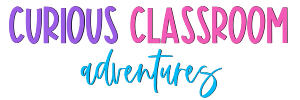
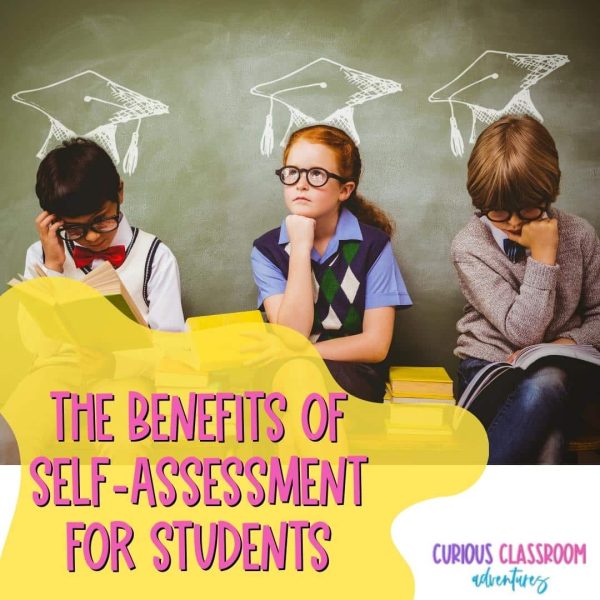
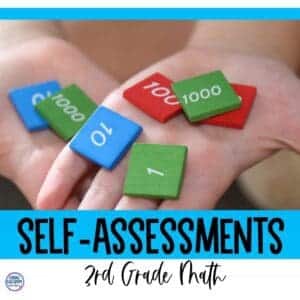
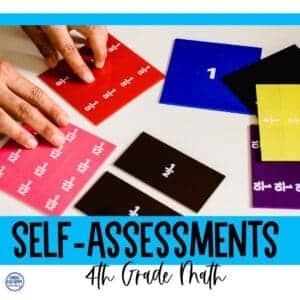
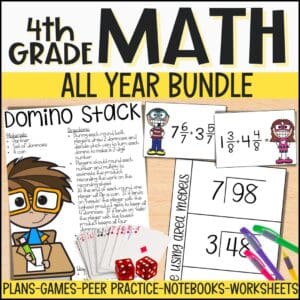
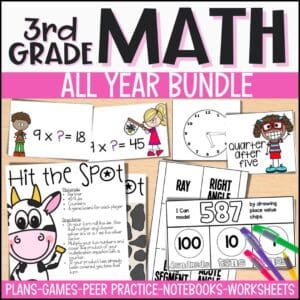
One Response